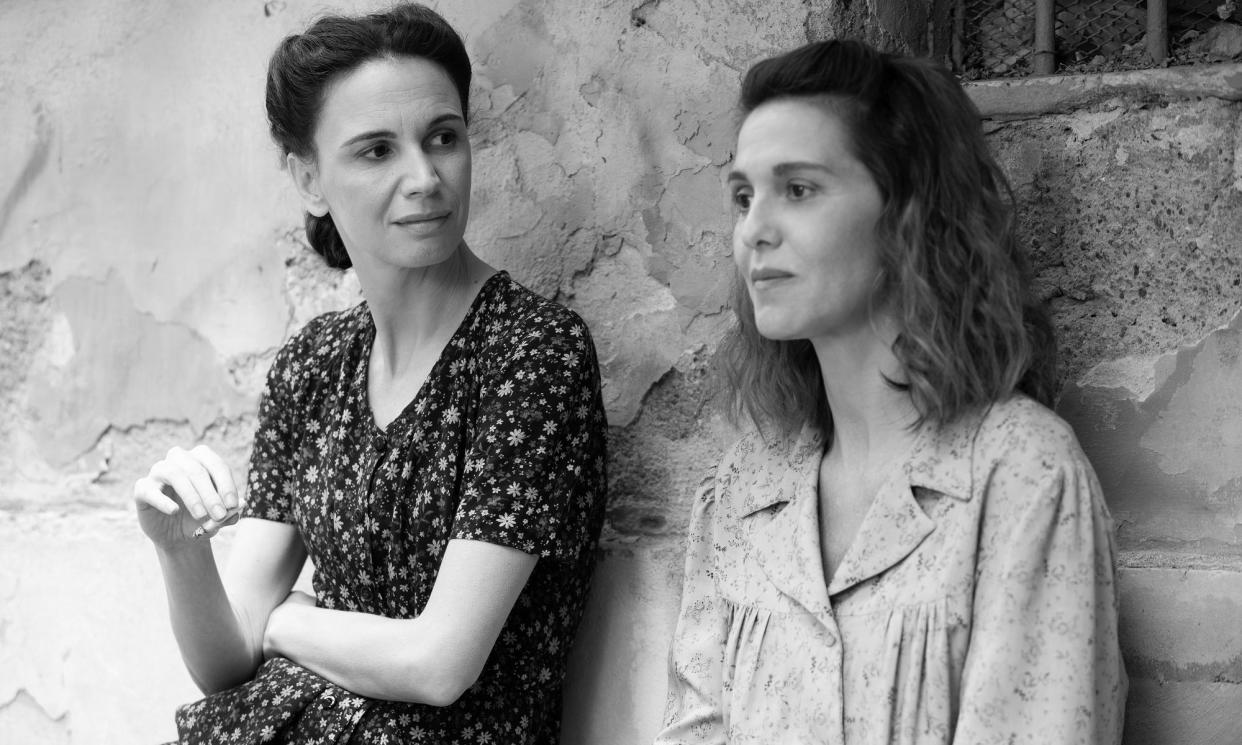‘Every Italian recognised a piece of their own family’: film on abuse of women touches a nerve

In a packed cinema in Rome, the casual cruelty of the slap stunned the audience into an uneasy silence.
It was the opening scene of C’è ancora domani (There’s Still Tomorrow), the directorial debut by the comic actor Paola Cortellesi, which had just been released after opening at the Rome film festival.
Lying in bed, the slap across the face was Ivano’s response to his wife, Delia, played by Cortellesi, bidding him “good morning”.
The gesture set the tone for the 1940s-set black-and-white film’s depiction of poverty, domestic violence, women’s rights and a mother’s determination to break the cycle of abuse in post-second world war Rome.
Audiences are more accustomed to Cortellesi, who co-wrote the film, making them laugh rather than slapping them with hard-hitting themes, which made the phenomenal box-office success of C’è ancora domani – it is among Italy’s Top 10 highest-grossing films ever – a surprise, even for her.
“I’m still struggling to get my head around it,” Cortellesi told the Guardian before the film’s release in France on Wednesday, the first country in its international circuit.
“People keep saying: enjoy the present! But I’m not able to … it’s as if I’m spinning inside a sort of hurricane that has taken me everywhere. This success is something which might never happen in a director’s entire career. It happened to me with my first film … you just hope that a lot of people will watch it.”
That hope certainly came to pass: C’è ancora domani, which picked up three awards at the Rome film festival including the special jury prize, has been watched by more than 5.3 million people in Italian cinemas. The film has drawn cinemagoers from across the generations and 45% of the audience has been male. After France, it is due for release in more than 17 other countries, including the UK on 26 April. The Italian prime minister, Giorgia Meloni, praised Cortellesi for a “courageous” film. Headteachers have written to her saying they want to show it to their students.
C’è ancora domani is set in 1946, the year Italian women were able to exercise their right to vote for the first time – in a national election and a concurrent referendum on abolishing the monarchy on 2 June.
Cortellesi said she wanted to make the film, partly inspired by her grandmothers’ stories of that period, in the past in order to raise issues that persist in Italian society amid a lingering toxic machismo.
She believes the film has been successful because it touched a nerve among Italians, adding that the thirst for debate was instantly palpable during her talks with cinema audiences as she toured cinemas in the early days of its release.
“I understood that every Italian, young or elderly, recognised in the film a little piece of their own family,” she said. “Not necessarily violence, but certain attitudes towards girls and women.”
What struck her the most were the number of women who found the courage to raise their hands and share their stories. “One said: ‘I was Delia, but I’m not any more.’ To say that in front of about 400 strangers in a multiplex was impressive … it felt as if the cinema became a protected environment for sharing one’s personal story, and this was a huge thing.”
The film’s themes further resonated after the murder in November of Giulia Cecchettin, a 22-year-old student, who was allegedly beaten by her former boyfriend. In reaction, thousands of people protested across Italy on 25 November, which was International Day for the Elimination of Violence against Women.
Cortellesi says there were more than 100 femicides in Italy in 2023 before Cecchettin’s death, and several more occurred by the end of the year.
On average in Italy, a woman is murdered by a man, usually someone who cannot accept the end of a relationship, every three days.
Italian newspapers often chronicle the deaths, but Cecchettin’s case stood out, partly because she and her ex-boyfriend came from well-off families, but also because her father and sister pushed Italians to react to a “patriarchal society” that supports “unhealthy male jealousy”.
“I don’t know how they found the strength to urge people to react while living with such pain, but this made the difference,” said Cortellesi. “There is perhaps a belief that femicide only reigns in poor and desperate families, so that this happened within a ‘normal’, principled setting made people worried for the safety of their own daughters and the encounters they have.”
After Cecchetin’s murder, the Italian parliament approved a range of measures to clamp down on violence against women, including expanding protections for women at risk and toughening restraining orders and penalties against men guilty of domestic violence. It was a rare show of unity between the ruling and opposition parties.
“Toughening laws is a good thing but you need to tackle the source of the evil … and to stop waiting for tragedies to happen before bringing about change,” said Cortellesi. “Changing the law is one thing, but changing the cultural mentality of an entire generation takes 30 or 40 years, and to do that you need education.”
Cortellesi’s film centres on a tough theme, but includes some comic moments and ends on a surprisingly optimistic, empowering note, an element of the film that also took audiences by surprise and perhaps played a role in its success.
“I wanted to set a realistic tone, and it is a very Italian thing to use humour even in the most tragic situations,” she said. “Life was very tough after the war, but there were also stories of hope.”


